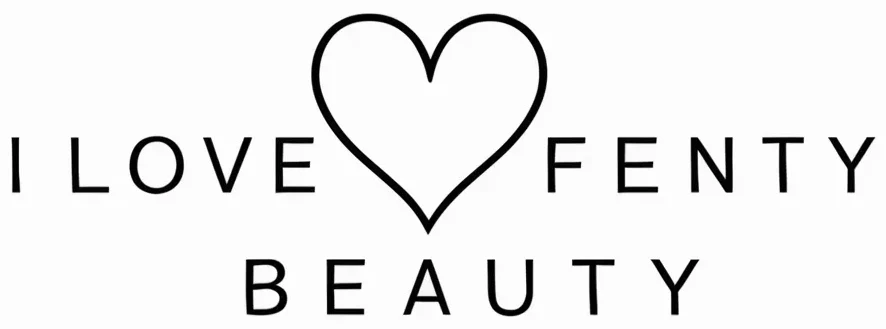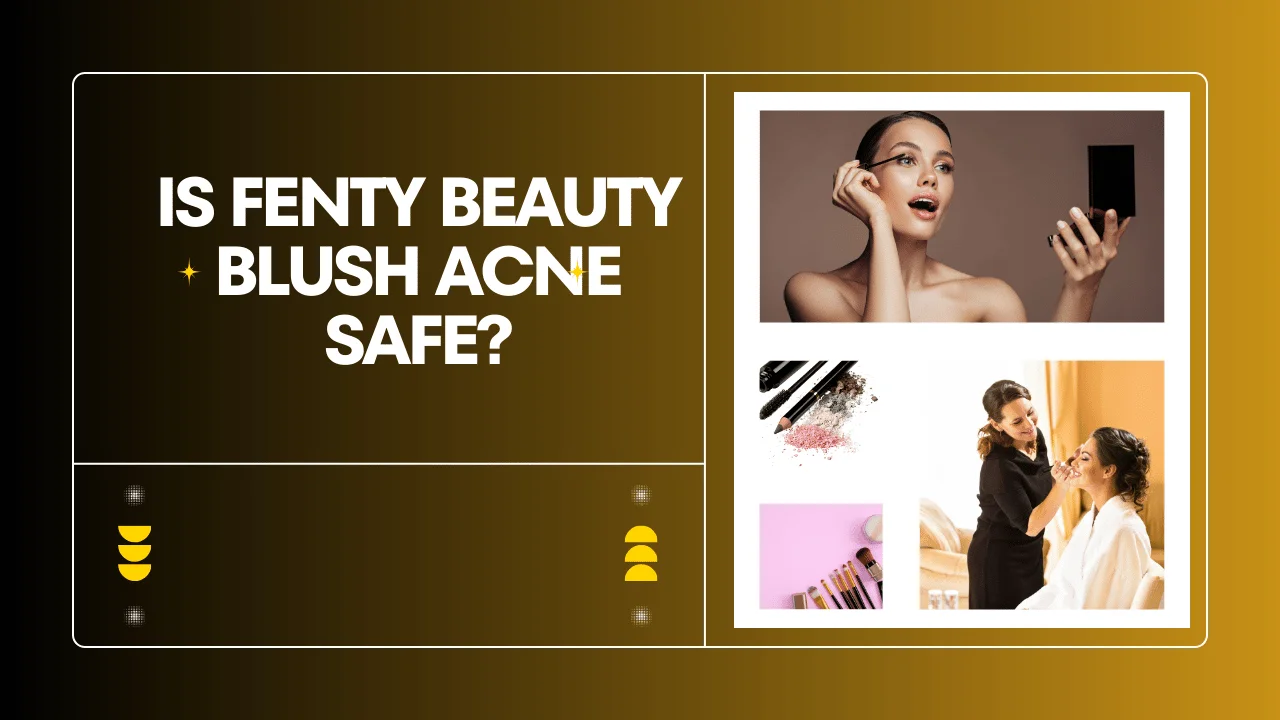Rocking a flawless flush is a makeup must-have, but for those of us battling acne, choosing the right blush can feel like navigating a minefield.
Fenty Beauty, with its inclusive shade range and celebrity cred (thanks Rihanna!), has become a go-to brand for many. But is Fenty Beauty blush a safe bet for your acne-prone skin?
Here’s the truth bomb: There’s no one-size-fits-all answer. While Fenty Beauty blushes boast gorgeous colors and a blendable texture, the real question is whether the ingredients play nice with your skin.
This blog post dives deep into the ingredient list of Fenty Beauty blush, exploring its potential to cause breakouts. We’ll also hear from dermatologists and real people with acne to get the inside scoop on whether this popular blush is a friend or foe to your complexion.
So, grab your makeup bag and get ready to discover if Fenty Beauty blush can be your new holy grail blush, or if it’s best left on the shelf.
Contents
- 1 Fenty Beauty Blush Ingredients
- 2 Acne-Prone Skin Considerations
- 3 Customer Experiences and Reviews
- 4 Dermatologist Insights
- 5 Conclusion and Recommendations
- 6 FAQ’s
- 6.1 Is Fenty Beauty blush safe for acne-prone skin?
- 6.2 What are the potential benefits of using Fenty Beauty blush for acne-prone skin?
- 6.3 Are there any risks associated with using Fenty Beauty blush for acne-prone skin?
- 6.4 What are the alternatives to Fenty Beauty blush for acne-prone skin?
- 6.5 How can I minimize the risk of acne breakouts when using blush?
- 6.6 Is it necessary to consult a dermatologist before using Fenty Beauty blush?
Fenty Beauty Blush Ingredients
Fenty Beauty blush is formulated with a variety of ingredients that contribute to its color, texture, and performance. While the exact ingredient list may vary slightly depending on the specific shade, some common ingredients found in Fenty Beauty blush include:
- Talc: A soft mineral often used in cosmetics for its absorbent properties.
- Mica: A naturally occurring mineral that provides shimmer and color.
- Iron oxides: Pigments that give blush its color.
- Dimethicone: A silicone-based ingredient that provides a smooth feel and helps to prevent moisture loss.
- Isostearyl Palmitate: A synthetic wax used as a binder and emollient.
While many of these ingredients are commonly used in cosmetics and are generally considered safe, some may be comedogenic, meaning they have the potential to clog pores and contribute to acne breakouts.
Dimethicone, in particular, has been identified as a potential comedogenic ingredient in some studies. However, it’s important to note that individual skin sensitivity can vary, and what may be comedogenic for one person may not be for another.
When comparing Fenty Beauty blush to other blush products, it’s worth noting that many blushes contain similar ingredients.
However, the specific formulation and concentration of ingredients can vary, which may affect the product’s potential to cause acne. It’s always a good idea to carefully examine the ingredient list of any blush product you consider using, especially if you have acne-prone skin.
Acne-Prone Skin Considerations
Acne is a common skin condition that affects millions of people worldwide. It occurs when hair follicles become clogged with oil and dead skin cells, leading to inflammation and the formation of pimples, whiteheads, and blackheads. Several factors can contribute to acne, including:
- Hormonal changes: Fluctuations in hormones, particularly during puberty, pregnancy, and menstruation, can trigger acne breakouts.
- Genetics: A family history of acne can increase your risk of developing the condition.
- Diet: Certain foods, such as dairy products and sugary beverages, have been linked to acne outbreaks in some individuals.
- Stress: High levels of stress can exacerbate acne or trigger new breakouts.
- Medications: Some medications, such as corticosteroids and certain birth control pills, can have side effects that contribute to acne.
For individuals with acne-prone skin, it’s important to use non-comedogenic makeup products that do not clog pores. These products are formulated to be less likely to cause breakouts and can help to prevent further irritation.
In addition to using non-comedogenic makeup, it’s essential to address the underlying causes of acne. This may involve making lifestyle changes, such as managing stress, eating a healthy diet, and avoiding excessive touching of the face.
If acne is severe or persistent, it’s recommended to consult with a dermatologist for professional advice and treatment.
Customer Experiences and Reviews
While Fenty Beauty blush has gained popularity for its vibrant colors and blendable texture, individual experiences with acne-prone skin can vary.
Many customers have reported positive experiences with Fenty Beauty blush, stating that it has not caused any additional breakouts or irritation. Some have even praised the product for its ability to provide a natural-looking flush without aggravating their acne.
However, it’s important to note that some individuals with acne-prone skin have reported negative experiences with Fenty Beauty blush. Some have complained of breakouts or increased acne after using the product.
These experiences may be attributed to individual skin sensitivity, the presence of comedogenic ingredients, or other underlying factors.
To gain a better understanding of how Fenty Beauty blush affects acne-prone skin, it’s helpful to examine case studies of individuals who have used the product. These case studies can provide valuable insights into the potential benefits and drawbacks of using Fenty Beauty blush for those with acne.

Dermatologist Insights
To gain expert advice on the suitability of Fenty Beauty blush for acne-prone skin, it’s essential to consult with a dermatologist. Dermatologists can provide personalized recommendations based on your specific skin type, severity of acne, and other factors.
While Fenty Beauty blush may be suitable for some individuals with acne-prone skin, dermatologists may recommend alternative blush options for those with severe acne. These options may include mineral-based blushes or blushes specifically formulated for sensitive skin.
In addition to choosing the right blush, it’s important to follow general skincare tips for acne-prone skin. These tips may include:
- Gentle cleansing: Wash your face twice daily with a mild, non-comedogenic cleanser.
- Avoid harsh scrubbing: Scrubbing your skin can irritate acne-prone skin and lead to further breakouts.
- Moisturize regularly: Using a non-comedogenic moisturizer can help to hydrate your skin and prevent dryness.
- Limit touching: Avoid touching your face throughout the day, as this can transfer bacteria and oils to your skin.
- See a dermatologist: If acne is severe or persistent, consult with a dermatologist for professional treatment options.
By following these guidelines and seeking advice from a dermatologist, you can make informed decisions about the best blush products for your acne-prone skin.
Conclusion and Recommendations
In conclusion, Fenty Beauty blush offers a wide range of colors and a blendable texture that can enhance your complexion. While it may be suitable for many individuals with acne-prone skin, it’s important to consider the potential for comedogenic ingredients and individual skin sensitivity.
When choosing a blush for acne-prone skin, it’s recommended to:
- Read the ingredient list: Look for products that are formulated with non-comedogenic ingredients.
- Patch test: Test a small area of skin before applying the blush to your entire face.
- Consider your skin type: Choose a blush that is suitable for your specific skin type (e.g., oily, dry, combination).
- Seek advice from a dermatologist: Consult with a dermatologist for personalized recommendations based on your individual needs.
By following these guidelines, you can help to minimize the risk of acne breakouts and find a blush that complements your complexion without irritating your skin.
FAQ’s
Is Fenty Beauty blush safe for acne-prone skin?
While Fenty Beauty blush can be suitable for many individuals with acne-prone skin, it’s important to consider the specific ingredients and your individual skin sensitivity. Some ingredients in the blush may be comedogenic and contribute to acne breakouts.
What are the potential benefits of using Fenty Beauty blush for acne-prone skin?
Fenty Beauty blush offers a wide range of colors and a blendable texture, which can help to enhance your complexion without looking cakey or heavy. It can also provide a natural-looking flush without aggravating acne.
Are there any risks associated with using Fenty Beauty blush for acne-prone skin?
Some individuals with acne-prone skin may experience breakouts or irritation when using Fenty Beauty blush. This can be due to the presence of comedogenic ingredients or individual skin sensitivity.
What are the alternatives to Fenty Beauty blush for acne-prone skin?
If you have acne-prone skin, you may want to consider using mineral-based blushes or blushes specifically formulated for sensitive skin. These products are often less likely to clog pores and cause breakouts.
How can I minimize the risk of acne breakouts when using blush?
To minimize the risk of acne breakouts, it’s recommended to:
Choose non-comedogenic blush products.
Patch test new blush products before applying them to your entire face.
Wash your makeup brushes regularly to prevent bacteria buildup.
Avoid touching your face throughout the day.
Is it necessary to consult a dermatologist before using Fenty Beauty blush?
If you have severe acne or are unsure about whether Fenty Beauty blush is suitable for your skin, it’s recommended to consult with a dermatologist for personalized advice.








